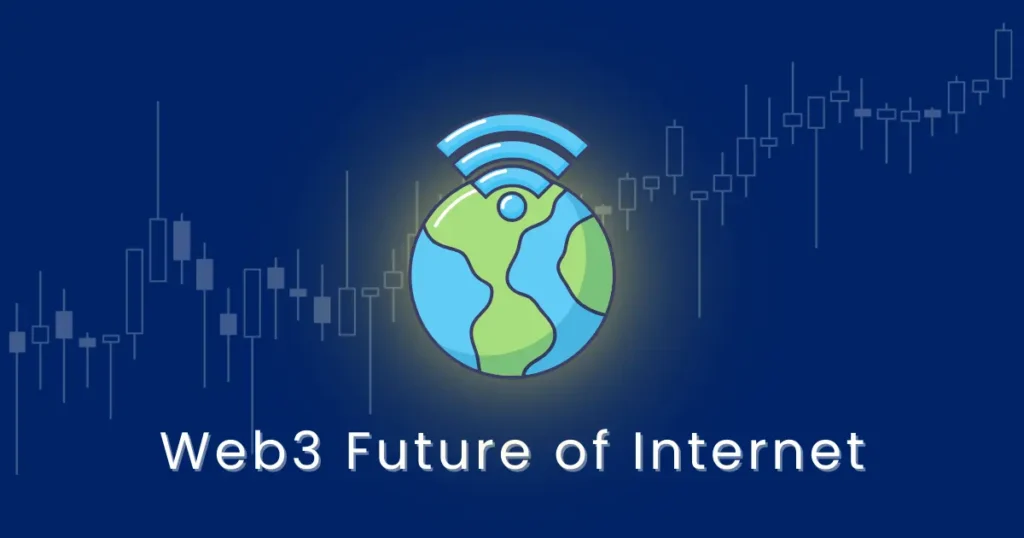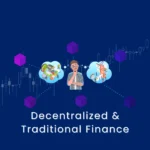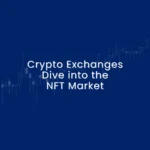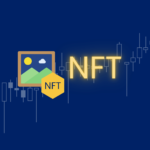Web3: Constructing the Three Next Storms of Internet Evolution.
In the past years, this influential Web3 idea has received strong receptivity in the tech community, indicating the possibility of profoundly altering the way we benefit the internet.
Staring at the road ahead as we enter a new digital age, we need to know what Web3 is, its probable impacts on the economy, and the risks and challenges that lie ahead.
In an attempt to explore the what and the why of Web3, this article will look at the critical components behind this new platform and the change it is expected to bring to the development of the internet in the future.
Understanding Web3: The Decentralized Web
It represents the third generation of internet services for websites and applications, focusing on a decentralized and blockchain-based environment.
Unlike its predecessors, Web1 (the static web) and Web2 (the interactive and social web), It emphasizes user sovereignty, data privacy, and interoperability across different platforms without relying on centralized servers or intermediaries.

Key Components of Web3
Blockchain and Cryptocurrency
Blockchain technology is the backbone of Web3, enabling decentralized data storage and management.
This use case consolidates the data integrity, security, and accessibility while the network is in operation. Cryptocurrencies with everyone’s favorite affix symbolized by a capital “C” are digital assets secured by cryptography that make transactions within the Web 3 ecosystem possible and represent a new way for the exchange and interaction with value.
Decentralized Autonomous Organizations (DAOs)
DAOs build a new variety of organizations and regulations in Web3. They function based on the blockchain, therefore, this facilitates the easy participation of individuals to respond to the laid down rules and structures.
Photo by Brad DAOs make the existing organizational models get outdated and democratize the governance and management of collective spontaneously without requiring centralized control.
Smart Contracts
Smart contracts are those that are automatically executed with the terms of agreement specified in written code. They operate on blockchain networks, enabling them to minimize the need for intermediaries due to which they are absolute in terms of transparency, security, and efficiency.
As a result, they can execute agreements of any kind more quickly and more efficiently than conventional financial services.
Decentralized Applications (dApps)
dApps are apps that are being built on top of the decentralized network, instead of the centralized data center. Users gain more autonomy and data safety with these cases; the future of the web should focus on new applications that do well in these two.
The issue is about the possible impacts of the fee.
Implementation of Data Privacy and Security is a critical part of a Tech Governance Framework.
Of the greatest merits of Web3 will be ultimately its ability to elevate data security and privacy. Data decentralization employed by Web 3 makes data breaches and data misuse by central partners improbable.
Consumers become the agents as they tend to have more control over their personal information, in a way turning the dynamics of data ownership and privacy.
Democratization of the Internet
It promises to make more people the owners of the web than the big tech companies, leveraging their control over online data and services.
This change in landscape empowers ordinary users and other smaller entities, enabling them to compete on more even grounds and thereby creating a more balanced digital world.
We have formed long-standing relationships not only with clients but also with people who have shared similar experiences. Our ability to adapt our offerings and business models has allowed us to reach new demographics and provide solutions to unmet needs in the marketplace.
It skyrockets multiple innovation vectors and possibilities mainly in the area of finances (DeFi), art (NFT), and governance (DAO). Those innovations create a situation when the existing models must give up and become more accessible, flexible, and decision-supported ones.
Challenges Facing Web3
Scalability
Scaling is one of its daunting problems. With time, the decentralized networks and applications grow in number, which is why they need to be lightning-fast and absolutely efficient.
The developers are targeting the problem by doing further research on the layer 2 scaling, sharding, and proof-of-stake consensus mechanisms, which can prevent this problem from occurring.
Usability
One of the biggest challenges for Web3 is user-friendliness. It is for wider acceptance. At present, interacting features engage in a tough learning pathway that disinclines the average member of the online community.
Education of non-specific consumers is the foremost important factor for development of the Web3.
Regulatory and Ethical Concerns
The very decentralized structure of Web3 does not leave the foggy waters of law and ethics.
Ensuring decentralized networks are being governed and that global regulations are complied with without sacrificing decentralization and the preservation of the principles is a complex work.
Web3 indicates the future status of the Internet.
It seems from our future perspective that Web3 has all the power and possibilities to change the way we interact with the digital universe.
Through the alignment of these pillars – decentralization, security, and user sovereignty, It projects a digital platform that is more equitable, transparent, and open.
Nonetheless, the path towards this dreamy goal is discouragingly full of technical, regulatory, and adoption complexity issues. The cooperation of all developers, users, judges, and other interested parties is the key to the creation of Web3 that brings benefits to all.
Lastly, though Web3 is yet to attain a matured phase, it is hence evident that its potential far and above the promise cannot be overlooked. It is necessary to stay critical, objective, and active during the move from Web2 to Web3, this is important in order that we democratize the world, and make it inclusive and privacy respecting.
The way to the world without the centralization of the Internet may not be prompt, but the results of it could reach the very lives of the whole generations which will take place through the centuries.
We have more than a digital revolution but a movement towards a more participative and powerful internet in favor of users.
However, as time goes by the pioneering work and creativity of Web3 will lead to more expansion of the reach of what is possible and may define the next Internet phase march.








